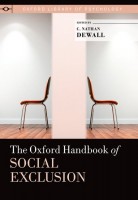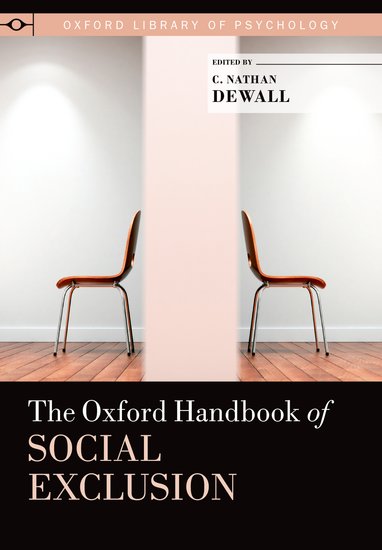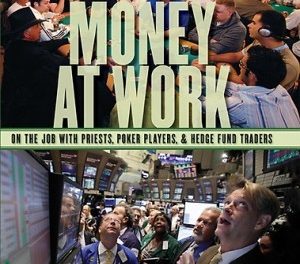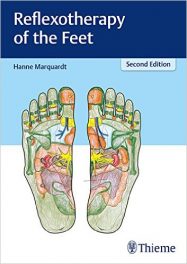 Editor: C. Nathan DeWall
Editor: C. Nathan DeWall
Publisher: Oxford University Press – 313 pages
Book Review by: Sonu Chandiram
How do you feel when you are deliberately excluded from a family, social or work group? Not good, most people will honestly admit. Others though, will rationalize that that group is not important to them, but they say that mainly to protect their bruised egos. Deep inside they feel that they need to belong.
The author writes that psychologists agree that “social exclusion thwarts a fundamental human motivation to have a few positive and lasting relationships.” That is one thing they all agree on, even as they argue on many other issues in professional conventions; write and passionately defend their views on a topic in trade journals; and beat down others’ views in television debates.
Social exclusion can not only bruise egos; it can damage relationships among people to an inestimable degree. From experience we know that social exclusion can damage the lives of those whose own sense of self-worth is closely linked with what they think (or guess) what others think of them.
This book “offers the most comprehensive body of social exclusion research ever assembled,” DeWall asserts. That research in its many aspects and components is presented and discussed in this pioneering volume on the fundamental need of people to belong and to be accepted by others.
Forty seven contributors provided the material for the 28 chapters of this book, which have been organized into eight Parts entitled:
- Introduction and Overview
- Basic and Historical Perspectives
- Exclusion at the Group Level
- Exclusion within the Family and Romantic Relations
- Individual Exclusion: Behavior and Cognition
- Individual Exclusion: Physiological, Neural, and Emotional Responses
- Exclusion Across Individuals
- Combating Social Exclusion
The material in each chapter is systematically laid out in the following order:
- Chapter Title
- Byline
- Abstract
- Key Words
- Introduction
- Discussions of Topics
- Conclusions
- List of References
I like summaries and abstracts in books. They save valuable time. If you are one of those who wants to get a gist of what is discussed in a chapter, I urge you to read, reread and even memorize the Abstract at the beginning of each chapter. Then think of situations in your own past or present wherein an event relating to that chapter subject occurred.
For example in chapter 2, Evolutionary Perspectives on Interpersonal Acceptance and Rejection, the chapter authors Mark R. Leary and Catherine A. Cottrell write in their Abstract that our ancestors established and maintained relationships with others because they thought that was among the “most crucial tasks” facing them.
They explain that human beings not only seek acceptance from others but also “respond adaptively to threats of social rejection.” Depending on their learned attitudes and behaviors, that response could range in a scale from indifference to violent rage. Leary and Cottrell add that people also “avoid and reject individuals who are judged to be poor relational partners and group members.”
What this chapter does is to examine:
- the interplay of these opposing inclinations
- the evolved adaptations that may underlie them
- the implications of an evolutionary perspective for understanding emotional behavioral reactions to interpersonal rejection.
What may seem surprising to you is that social exclusion and rejection was a necessity in our evolution, the authors write. And it was necessary for our survival, believe it or not. Why? Because “solitary individuals were unlikely to survive, reproduce and have offspring who survived to reproduce,” in the wild, especially in the company of large mammals who had brute strength, claws, fangs, ferocity, and speed.
So our ancestors had to learn to live together and cooperate with one another, and work as teams. Or perish. And if that meant living with social rejection, they had no choice. One for all, all for one.
This is an eye-opening book with a tremendous amount of research and discussion on an issue that’s rather uncommon in psychology books: social exclusion.
C. Nathan DeWall is an Associate Professor of Psychology at the University of Kentucky. He has published over 100 peer-reviewed articles, chapters, and books. The Association for Psychological Science identified him as a “Rising Star,” and the Foundation for Personality and Social Psychology awarded him a SAGE Young Scholars Award. He is a sought-after speaker. This year he will be giving talks in Australia, China, Hong Kong, Luxembourg, the Netherlands, and many locations in the United States.
His research on social connections is currently supported by grants from the National Institutes of Health, the National Science Foundation, and the Templeton Foundation. He has been frequently featured in the national media, including in the Harvard Business Review, the Los Angeles Times, the New York Times, Time and National Public Radio.







